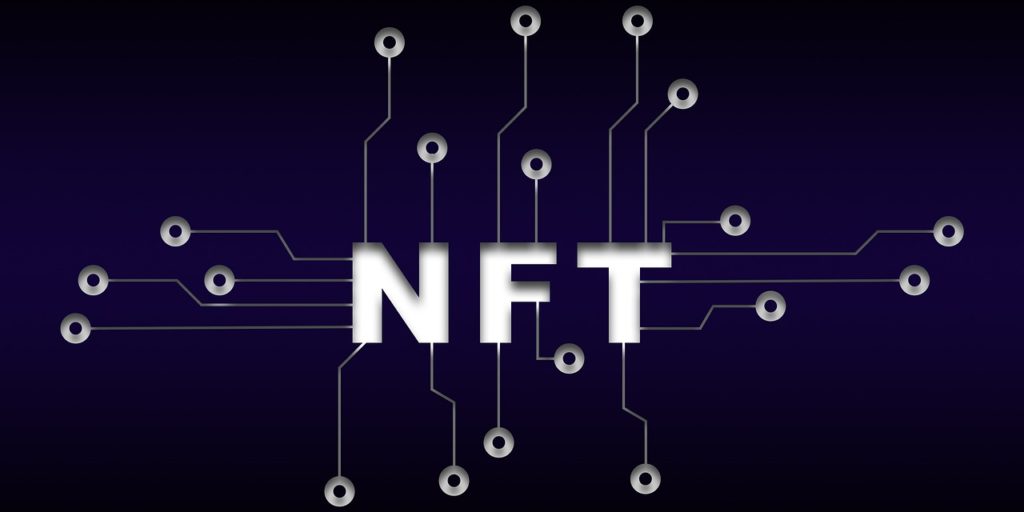- U.S. lawmakers tee up copyright protection for golf courses - March 6, 2024
- Remain vigilant over your licensees in trademark agreements - January 22, 2024
- ‘Trump too small’ slogan is not deserving of trademark protection - December 7, 2023
By Tony Poland, LegalMatters Staff • As digital products become more popular, consumer brand owners are increasingly looking to secure trademark rights in non-fungible tokens (NFTs), says Toronto intellectual property lawyer John Simpson.
Simpson, principal of IP and new media law boutique Shift Law Professional Corporation, points to a recent report stating Nike is seeking to register trademarks for a variety of virtual goods and related services.
“We only started seeing this in recent months,” he tells LegalMattersCanada.ca. “Many particularly well-known brands such as Nike and Estée Lauder are trying to extend the scope of their real-world trademarks to the virtual world. Nike has registrations that cover existing product lines and retail services, but as it starts selling virtual goods, it will want its valuable trademarks to cover those goods as well. Many lesser-known brands are also looking to get in on the action.”
NFT assets are capable of being unique
An NFT is a digital asset that is authenticated and certified through blockchain technology. A blockchain stores information electronically in a digital format and is best known for being used in cryptocurrency systems. Unlike cryptocurrency where each unit has the same value as a similar unit, an NFT asset is capable of being unique.
“NFTs are a way to create scarcity in digital objects which are otherwise infinitely reproducible,” says Simpson. “The simplest way to conceive of a NFT is as a digital collector’s item such as a signed baseball card.
“We are getting more and more inquiries from clients about how to extend their trademark rights in real world goods into corresponding digital goods,” he adds. “Trademark lawyers are already developing strategies for protecting rights over NFTs but without the benefit of guidance from the Trademarks Office or the courts. This is often the case with new technology or product categories, where we need to make decisions and give advice months or years before we know where the law will ultimately land.”
Because it is a developing issue, trademark offices throughout the world are also still finding their way, Simpson says.
‘The law does not like uncertainty’
“The law does not like uncertainty. But whenever you have something new like this, there’s going to be some uncertainty and bumps in the road,” he says. “And those bumps may continue for years to come.”
He says the last “exciting new product category we saw in Canada was cannabis. And the issues relating to cannabis trademarks, including their scope of protection and when they are confusing with other trademarks, are still being sorted out.”
- SCC refuses to say whether copyright guidelines are fair dealing
- The intellectual property protection Banksy wants comes at a cost
- Copyright case examines the issue of history repeating itself
“Canadian trademark applications are currently taking more than two years to get examined,” Simpson says. “So, if an examiner raises an issue about an application that is filed today that covers NFTs, it might be three years before that issue is resolved. And different examiners may render inconsistent decisions over that time. Then disputes between trademark owners over NFT brands may take another three years to get resolved.”
Issues are likely to arise
He says issues relating to NFTs and “virtual goods” are likely to arise due to the broad nature of this product category.
“Trademark offices require applicants to describe the goods or services in their applications with a high degree of specificity to avoid uncertainty around their scope,” Simpson explains. “It will be interesting to see to what extent applicants are required to specify the nature of the virtual goods and NFTs they claim in applications and how these goods are to be classified. Simply registering for protection for virtual goods is likely to be too broad of a scope. Using Nike as an example, I suspect something more specific, such as ‘virtual shoes,’ would be more in line with what the trademarks office would want to see.
“Once those trademark applications pass through the examination stage, it will be interesting to see to what extent a trademark associated with NFTs is deemed to be confusing with someone else’s trademark for the corresponding real goods,” he adds. “The way questions like that will be approached, as they always are in trademark disputes, is whether the average consumer would expect to see a brand that sells traditional goods, such as makeup and shoes, also selling NFTs for makeup and shoes. I believe we are already seeing that.”


Pingback: It was another interesting year for intellectual property law ⋆ LegalMattersCanada